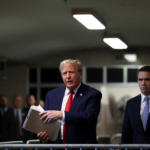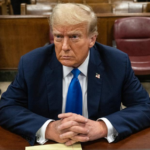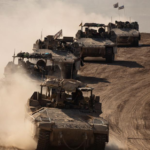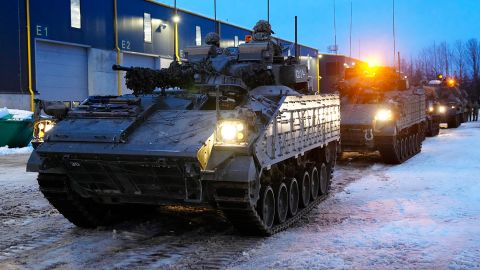CNN
—
The West’s decision to finally send tanks to Ukraine has caused some to ask the uncomfortable question: Does this mean that NATO is now in direct conflict with Russia?
This narrative, which is being pushed hard by the Kremlin, undoubtedly helps Russian President Vladimir Putin and his allies deflect from the fact that Russia launched an unprovoked attack on Ukraine and illegally occupied parts of a sovereign state.
It also, perhaps more conveniently for Putin, gives the NATO allies pause for thought when it comes to deciding exactly how much military assistance they should give Ukraine.
First things first: the consensus among experts is that no NATO member is anywhere near what could be considered to be being at war with Russia by any internationally accepted legal definition. Therefore, the idea that the alliance is at war with Russia is a non-starter.
“War would require strikes carried out by US or NATO forces, in uniform, attacking from NATO territory against Russian forces, Russian territory, or the Russian populace,” explains William Alberque, from the International Institute for Strategic Studies.


“Any fighting by Ukraine – with any conventional weapons, against any Russian forces – is not US/NATO war on Ukraine, no matter how much Russia wants to claim it so,” he adds.
Alberque points to the United Nations Charter, which states that nothing “shall impair the inherent right of individual or collective self-defence if an armed attack occurs against a Member of the United Nations, until the Security Council has taken measures necessary to maintain international peace and security.”
Russia is a permanent member of the UN Security Council and has used its veto to block condemnation of its actions in Ukraine.
The Kremlin has certainly sought to exploit certain grey areas that are inherent in any modern warfare to incorrectly claim that NATO is the chief aggressor in the Ukraine conflict.
Those grey areas might include the use of Western intelligence to carry out attacks on Russian targets.
They could also include the US launching the war on terror and invoking NATO’s Article 5 after the 9/11 attacks, in which America was attacked by terrorists rather than a nation state.
Russia’s Security Council secretary, Nikolai Patrushev, has claimed that the West is trying to “destroy” Russia. Anatoly Antonov, Russia’s ambassador to the United States, has said that the US administration is pushing Ukraine to “carry out terrorist attacks in Russia.”
Of course, whatever slim merit there might be to these dubious claims, they pale in comparison to the documented brutality and illegal actions of Russian forces in Ukraine since Putin ordered the invasion.
But the fact that they exist and are being taken seriously by analysts and commentators outside of Russia, including in Washington DC, plays into the Kremlin’s hands in more ways than one.
John Herbst, former US ambassador to Ukraine and senior director of the Eurasia Center at the Atlantic Council, explains that promoting the idea of this being a NATO-Russian war helps explain to Putin’s domestic audience why the invasion has not succeeded as quickly as Russia had hoped.
“Because the Russian military has been such a failure in Ukraine, it is helpful to explain this as a war with NATO rather than Ukraine. This also helps justify whatever steps Putin might take next, and Russia has been very keen to play up the idea that this might mean going nuclear,” Herbst told CNN.
Herbst believes that Russia’s information war on the West has been more successful than its military campaign, in the sense that it has caused credible and rational people in Washington, DC to self-deter from backing increased military support to Ukraine because they overstate the prospect of Putin using nuclear weapons, which would be disastrous for Russia too.
“I can’t tell you how many experts have said we really can’t provide Ukraine with certain weapons because Putin will go nuclear. What we’ve seen in the past six months is Russian think-tankers contacting their colleagues in the West to say that Putin could really do it. Sadly, Washington and Berlin, especially, allowed themselves at times to be deterred by this threat,” he says.

The reason long-term Putin-watchers think there is little threat of Russia escalating to the point of provoking NATO to respond with force is simply that Moscow knows it couldn’t survive the confrontation.
“One of the few objectives that the Russian and US leadership share at the moment is avoiding a direct conflict between the two powers,” says Malcolm Chalmers, deputy director general at the Royal United Services Institute think tank in London.
“Russia knows that a conventional confrontation with NATO would be over very quickly for them. However, there is some sense in ratcheting up the idea that it is willing to take that risk, if it means it can extract more concessions from the West,” he adds.
Multiple European officials and NATO sources agreed with the analysis that Putin going nuclear was unlikely, though the possibility had to be taken seriously and avoided. The question is, avoided at what cost?
Ukraine will very likely continue to ask for more weapons and greater support from its allies the longer the war drags on. Each time, every NATO member will have to weigh up whether or not it’s worth the risk, or if dragging its feet actually plays into the Kremlin’s hands.

Herbst believes that the Russian invasion of Ukraine has served as a sharp reminder of what dealing with an aggressive Kremlin is like and that Western officials had temporarily forgotten the tactics of the Soviet Union during the Cold War.
“The soft-headedness of the West has happened because we’ve had peace between the great powers for the best part of 30 years,” he says. “We are currently in the process of discovering stuff that we knew in our bones at the height of the Cold War. And the only reason why we are seeing this now is because one of the great powers has decided it doesn’t like the world order that now exists.”
As the war progresses, the West and NATO are being forced to learn hard lessons in real time.
But each time Russia warns of escalation – either by itself or NATO – Western capitals must keep sight of the fact: Russia is the aggressor in this conflict and the West is nowhere near being at war with Russia.
And no matter what noises Kremlin officials make about the West trying to destroy Russia, only one sovereign state has invaded another sovereign state and illegally claimed parts of its territory by force.
Author Profile
- "Far Left" Bias Rating
- The Cable News Network is a multinational cable news channel headquartered in Atlanta, Georgia, U.S. Founded in 1980 by American media proprietor Ted Turner and Reese Schonfeld as a 24-hour cable news channel.
Latest entries
 HeadlinesApril 24, 2024Second day of testimony wraps in Trump hush money trial
HeadlinesApril 24, 2024Second day of testimony wraps in Trump hush money trial HeadlinesApril 24, 2024Trump criminal trial wraps for the day after opening statements and first witness
HeadlinesApril 24, 2024Trump criminal trial wraps for the day after opening statements and first witness HeadlinesApril 23, 2024Protests at Columbia and other schools escalate
HeadlinesApril 23, 2024Protests at Columbia and other schools escalate HeadlinesApril 23, 2024April 22, 2024 – Israel-Hamas war
HeadlinesApril 23, 2024April 22, 2024 – Israel-Hamas war

